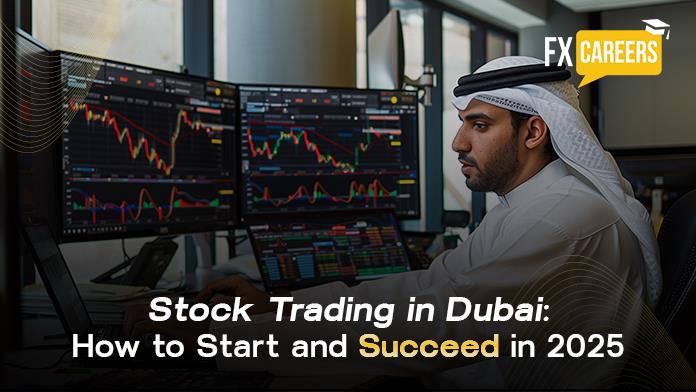FXCareers Blogs
 Go Back Home
Go Back Home

 12-11-2024
12-11-2024 5 minutes of Reading
5 minutes of Reading
The Importance of Forex Education: Your Guide to Smarter Trading
Forex trading can be a lucrative venture, but it's essential to approach it with the right knowledge and skills. This article explores the importance of Forex education and explains why it's crucial for beginners and experienced traders alike. Learn about the key areas of Forex education, including technical analysis, risk management, market psychology, and economic indicators. Understanding these concepts can build a solid foundation for successful trading.
Every day, over $6.6 trillion flows through the Forex market as traders buy and sell global currencies, making Forex the largest trading market in the world. Yet, despite its massive size, many beginners lose money early on. 70% of new traders face losses within their first year, often because they skip learning the basics. The importance of Forex education cannot be overstated, as it equips traders with the tools to avoid common mistakes and make informed decisions. This article explores why Forex Trading Education is essential for anyone interested in trading.
Imagine someone entering the Forex market with dreams of making quick money, only to lose their entire investment within days. This story is more common than you might think, and it often happens because new traders jump in without proper education. Learning about Forex helps you make smart decisions instead of acting on impulse
Why Do You Need to Learn Before Trading?
Think about learning to drive a car. You wouldn't try driving on a busy road without learning the rules and practicing first. Forex trading works the same way. The market has its own rules, signs, and ways of working. When new traders jump in without learning these basics, they often make mistakes that cost them their trading accounts.
A well-rounded Forex education helps traders analyze market conditions, understand global economic influences, and respond to unexpected changes. Without this knowledge, trading is like sailing without a map—inevitably leading to costly mistakes.
Risks of Trading Without Education: Industry Pitfalls and Misconceptions
One of the biggest mistakes in Forex trading is underestimating the market's complexity. Many beginners assume that by simply following trends or copying successful traders, they can achieve instant results. However, the truth is far more nuanced. Market conditions can change in minutes, and without a solid educational background, novice traders often find themselves trapped by volatility and emotional decisions.
Common Pitfalls Include:
- Over-Leveraging: Taking on too much risk by borrowing funds to trade, often leading to greater losses.
- Ignoring Risk Management: Focusing solely on profits without considering potential losses.
- Relying on Gut Feelings: Emotion-based trading rather than data-driven analysis.
Forex education teaches traders how to avoid these pitfalls by building strategies that incorporate risk management, analytical thinking, and a disciplined approach.
Key Areas in Forex Education: Building a Skillset for Success
Forex education covers a broad range of topics, each essential for developing a profitable trading strategy. Some of the key areas include:
- Technical Analysis: This involves using charts and historical data to forecast currency movements. Through tools like moving averages, Fibonacci retracement, and Bollinger Bands, traders learn to identify patterns that suggest future trends.
- Risk Management: Proper risk management techniques protect traders from significant losses. By setting stop-loss orders, determining risk-reward ratios, and understanding leverage, educated traders can mitigate the effects of inevitable losses.
- Market Psychology: Emotions play a huge role in trading. An understanding of market psychology helps traders stay calm during both winning and losing streaks. A well-educated trader knows how to manage the "fear of missing out" (FOMO) and "loss aversion" biases, both of which can lead to impulsive decisions.
- Economic Indicators: Forex is deeply influenced by global events—interest rates, inflation, political stability, and economic growth. An educated trader learns to interpret these indicators, anticipating how events like central bank decisions or international conflicts might impact currency values.
Through these foundational skills, traders can develop a comprehensive approach to Forex, building strategies that are informed, calculated, and adaptable.
Conclusion: A Call for Continuous Learning and Practical Application
The Forex market offers an incredible opportunity for those willing to invest in education. Success is rarely immediate and never guaranteed, but with consistent learning, practical experience, and a disciplined approach, traders can increase their chances of making informed, strategic decisions. A solid Forex education not only opens doors to better trading opportunities but also provides the tools needed to navigate this challenging market confidently.
For anyone considering a journey into Forex, the first step should always be education. By building this foundation, traders equip themselves with the knowledge to not just survive but potentially thrive in the dynamic, high-stakes world of Forex trading.

Want to Expert in Trading?
One Step a Way
Start building your trading skills for a successful financial future.
Get Started

